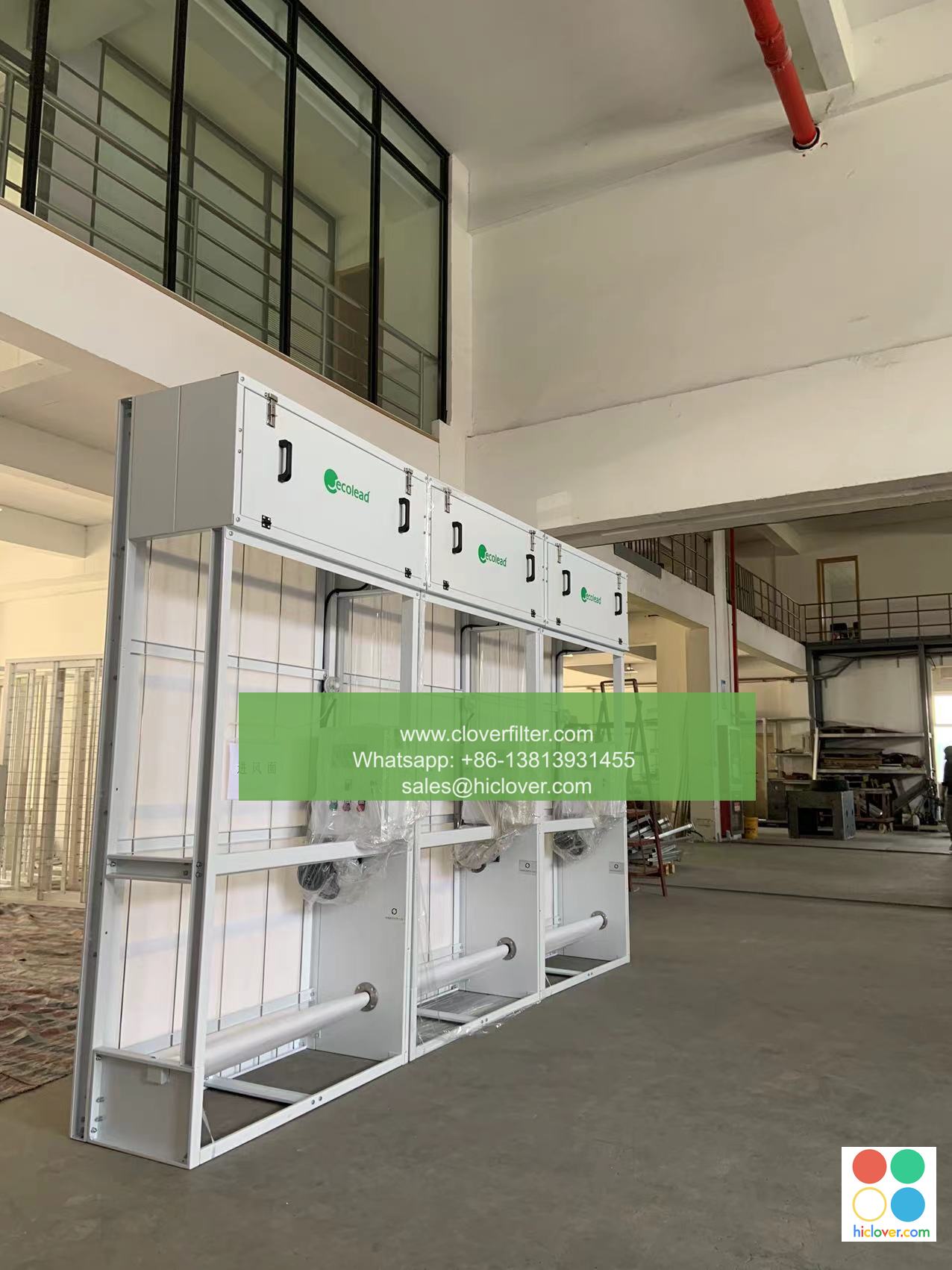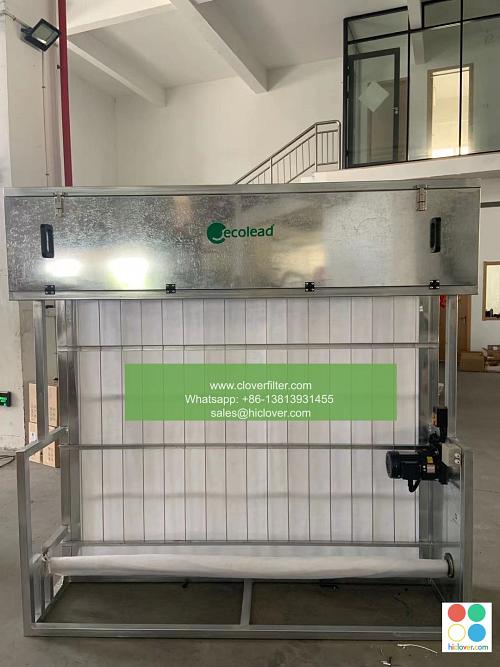Quebec Cleanroom Regulations: Meeting Standards with Automatic Roll Air Filters

Quebec, being one of the most industrialized provinces in Canada, has a significant number of cleanrooms operating across various sectors, including pharmaceutical, biotechnology, and semiconductor manufacturing. These cleanrooms require a controlled environment to ensure the quality of products and minimize contamination risks. The regulation and standards governing cleanrooms in Quebec are stringent, emphasizing the importance of maintaining a clean and safe environment. One crucial aspect of achieving and maintaining these standards is the use of automatic roll air filters.
Quebec’s cleanroom regulations are primarily guided by international standards such as ISO 14644-1 and ISO 14644-2, which provide guidelines for the design, construction, and operation of cleanrooms. These standards outline requirements for temperature, humidity, air cleanliness, and other environmental parameters. For instance, ISO 14644-1 specifies the classification of air cleanliness in cleanrooms based on the concentration of airborne particles, ranging from ISO 1 (the cleanest) to ISO 9 (the least clean). Quebec’s cleanrooms must adhere to these classifications depending on their specific applications.
Automatic roll air filters play a critical role in meeting these standards by providing efficient and continuous air filtration. Unlike traditional filter systems that require manual replacement, automatic roll air filters can operate without interruption, ensuring a consistent level of air cleanliness. These filters are designed to automatically roll out new filter media as the old one becomes saturated, minimizing downtime and reducing the risk of contamination associated with manual filter changes.
The use of automatic roll air filters in Quebec’s cleanrooms offers several advantages. Firstly, they help maintain the required air cleanliness levels by continuously removing particles and other contaminants from the air. This is particularly important in sectors such as pharmaceutical manufacturing, where even the slightest contamination can have significant consequences. Secondly, automatic roll air filters can help reduce operational costs by minimizing the need for manual intervention, thereby decreasing labor costs and the risk of human error. Lastly, these filters contribute to a more sustainable operation by reducing waste, as only the saturated filter media needs to be replaced, and the rest of the system remains intact.
In addition to the technical benefits, integrating automatic roll air filters into cleanroom operations in Quebec also supports compliance with regulatory requirements. By maintaining a consistent and high level of air cleanliness, cleanrooms can more easily meet the standards set by ISO 14644 and other relevant regulations. This not only ensures the quality of products but also enhances the safety and health of personnel working within these environments. Furthermore, compliance with these standards can also impact a company’s reputation and its ability to compete in the global market, as many international clients and partners require evidence of adherence to such standards.
Implementing and maintaining automatic roll air filters, however, requires careful planning and monitoring. Cleanroom operators must ensure that these systems are properly installed, maintained, and validated to guarantee their effectiveness. Regular testing and certification of the air filtration system, as well as the training of personnel, are essential components of a comprehensive cleanroom management strategy. Moreover, the selection of the right automatic roll air filter for a specific cleanroom application is crucial, taking into account factors such as the required air cleanliness level, airflow rates, and the type of contaminants to be removed.
Given the complexities and challenges associated with cleanroom operations, it is essential for facilities in Quebec to stay updated with the latest technologies and best practices in air filtration. This includes investing in automatic roll air filters and ensuring that all aspects of cleanroom management, from design to daily operation, are aligned with the highest standards of quality and safety.
Conclusion
In conclusion, Quebec’s cleanroom regulations underscore the importance of a controlled environment in various industrial sectors. Automatic roll air filters are a vital component in achieving and maintaining the high standards of air cleanliness required by these regulations. By providing continuous and efficient air filtration, these systems support not only the production of high-quality products but also the safety and health of cleanroom personnel. As the demand for cleanrooms continues to grow, the role of automatic roll air filters will become increasingly significant in helping Quebec’s industries meet and exceed the required standards.
FAQs
- What are the primary standards governing cleanrooms in Quebec? The primary standards include ISO 14644-1 and ISO 14644-2, which provide guidelines for the design, construction, and operation of cleanrooms.
- How do automatic roll air filters contribute to cleanroom operations? Automatic roll air filters contribute by providing continuous air filtration, reducing downtime, minimizing contamination risks, and lowering operational costs.
- Why is compliance with cleanroom standards important for industries in Quebec? Compliance is crucial for ensuring product quality, personnel safety, and conformity with international standards, which can impact a company’s reputation and competitiveness.
- What factors should be considered when selecting an automatic roll air filter for a cleanroom? Factors include the required air cleanliness level, airflow rates, the type of contaminants to be removed, and the specific application of the cleanroom.
- How often should automatic roll air filters be maintained and validated? Regular maintenance and validation are essential and should be performed according to the manufacturer’s instructions and relevant standards to ensure the filters’ effectiveness.

